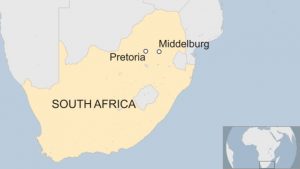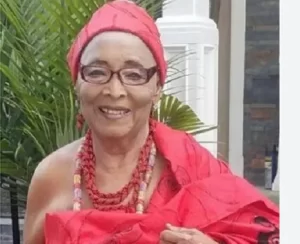The body of Zimbabwes ex-president Robert Mugabe was flown out of Singapore Wednesday following his death last week, his nephew said.
He is heading home for burial in a country bitterly divided by a legacy of a hero-turned-despot.
Mugabe, a guerrilla leader, swept to power after Zimbabwe’s independence from Britain and went on to rule for 37 years until he was ousted in 2017. He died on Friday, aged 95.
His health deteriorated after he was toppled by the military and former loyalists in November 2017, ending an increasingly iron-fisted rule that sent the economy into ruin.
He died after receiving treatment at a Singapore hospital for several months, and a delegation including Vice President Kembo Mohadi traveled to the affluent city-state on a chartered flight to bring him home.
Early Wednesday a hearse transporting Mugabe’s body left a Singapore funeral parlor bound for an airport and accompanied by a police escort, driving past a group of waiting journalists.
A plane carrying the former leader and the visiting delegation departed shortly afterward, his nephew Adam Molai told AFP.
“It just left now,” he said by phone from the plane as it took off, with the noise of the aircraft audible in the background.
The Zimbabwean delegation arrived on Tuesday and attended a private Catholic mass for Mugabe at the funeral parlor, officiated by a Zimbabwean priest.
– From hero to a tyrant –
Zimbabweans have been divided over how to mourn a former leader once hailed as a liberation hero but who later brutally repressed his opponents.
He was initially praised for ridding the former British colony Rhodesia of white minority rule but later used repression and fear to govern until he was finally ousted. His increasingly tyrannical leadership and economic mismanagement prompted millions to leave the country.
Following his death, President Emmerson Mnangagwa announced he had been declared a “national hero”, flags flew at half-mast across Harare and news of his passing was splashed across newspaper front pages.
Yet Harare residents appeared largely unconcerned, with shops remaining open and people going about their daily errands.
On arrival in Zimbabwe, Mugabe’s body will be taken straight to his village in Kutama, in Zvimba district west of the capital Harare, for an overnight wake.
On Thursday and Friday, the body will lie in state at Rufaro Stadium in Mbare township in Harare for the public to pay their final respects.
The 35,000-seater stadium is where Mugabe took his oath of office at a colourful ceremony when colonial Rhodesian Prime Minister Ian Smith handed over the country.
There Mugabe hoisted the new Zimbabwe flag and lit the independence flame on April 18, 1980 — bringing hope for a new era after a long guerrilla war.
The official funeral will be held on Saturday at the giant 60,000-seat National Sports Stadium in Harare and foreign leaders are expected to attend.
He will be buried on Sunday but the location remains unclear.
Mugabe’s family and Mnangagwas government are apparently at odds over whether it would be at his homestead northwest of Harare or at a shrine for liberation heroes in the capital.
A relative has said that in line with native Shona customs, traditional chiefs from Zvimba will have a final say on where the former leader will be buried.







